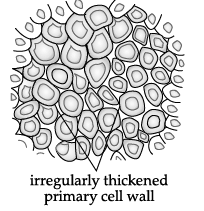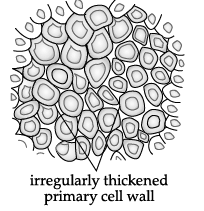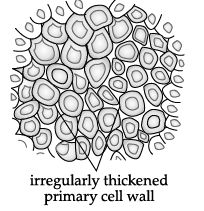Test: Tissues- Case Based Type Questions- 1 - Class 9 MCQ
10 Questions MCQ Test - Test: Tissues- Case Based Type Questions- 1
Direction: Some of the action like moving our limbs , fingers, moving neck etc. can be controlled by our will. These parts of body we can move by our own will but some actions like blinking of eyes, contraction and relaxation of heart are not controlled by our actions.
Q. Muscles which are found in Heart :
Direction: Some of the action like moving our limbs , fingers, moving neck etc. can be controlled by our will. These parts of body we can move by our own will but some actions like blinking of eyes, contraction and relaxation of heart are not controlled by our actions.
Q. The muscles which perform voluntary action are :
Direction: Some of the action like moving our limbs , fingers, moving neck etc. can be controlled by our will. These parts of body we can move by our own will but some actions like blinking of eyes, contraction and relaxation of heart are not controlled by our actions.
Q. The actions which are not under our control are known as ____________ action.
Direction: Some of the action like moving our limbs , fingers, moving neck etc. can be controlled by our will. These parts of body we can move by our own will but some actions like blinking of eyes, contraction and relaxation of heart are not controlled by our actions.
Q. The muscles which have long and pointed ends :
Direction: Study the given diagram and answer the following questions.

Q. The irregular thickening is due to the deposition of :
Direction: Study the given diagram and answer the following questions.

Q. Collenchymatous tissues are :
Direction: Study the given diagram and answer the following questions.

Q. Identify the tissue :
Direction: Study the given diagram and answer the following questions.

Q. Collenchyma Tissues are found in :
Direction: Sunil while playing football with his friends got injured suddenly. His friends took him to the hospital and the doctor told that he was suffering from a sprain and advised bed rest. Every afternoon, his friends visited him to enquire about his health.
Q. Tissue which connects bone to bone :
Direction: Sunil while playing football with his friends got injured suddenly. His friends took him to the hospital and the doctor told that he was suffering from a sprain and advised bed rest. Every afternoon, his friends visited him to enquire about his health.
Q. Tissue which connects bones to muscles in humans :














